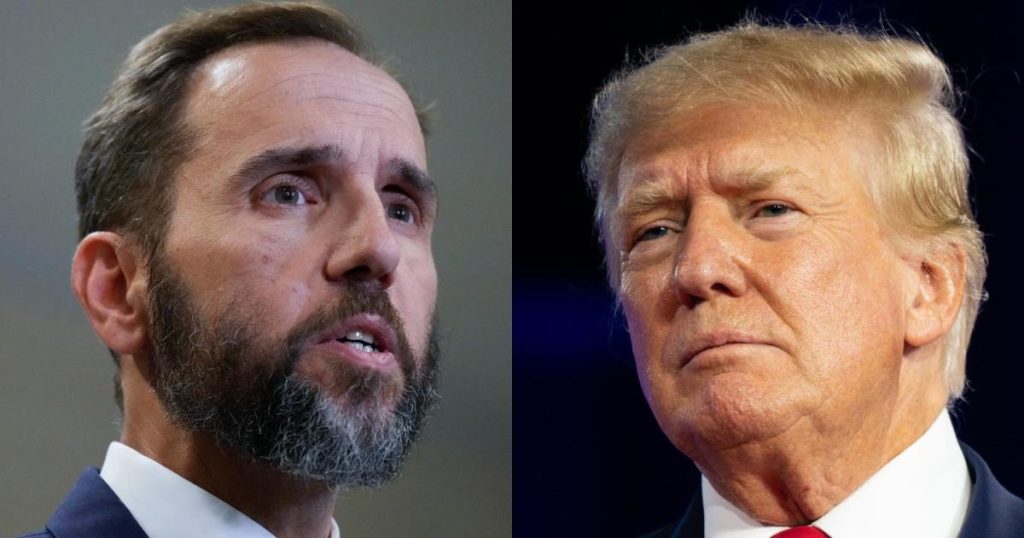The former President, Donald Trump, and special counsel, Jack Smith, were back in federal court in Washington for the first time since the Supreme Court’s ruling on presidential immunity. The court sparred over the proposed paths for pretrial proceedings following the decision. Trump was charged with the same four charges he initially faced, and his attorney reaffirmed his not guilty plea. The judge did not finalize a schedule but indicated she would do so later in the day, stating that discussing a date for trial would be futile at this point.
The fight over the timeline continued as the special counsel proposed moving forward promptly and laying out all the issues for consideration. Prosecutors intended to provide a description of facts related to the indictment, both inside and outside of it. Trump’s legal team argued for more time, suggesting a schedule that would extend proceedings into 2025. They also claimed that Smith’s appointment and funding were unconstitutional, a point that a South Florida judge agreed with, although that decision was appealed. The judge upheld the special counsel’s appointment, stating that the case should not be dismissed based on presidential immunity.
Trump’s lawyers continue to argue for dismissal based on presidential immunity and may seek to have charges dismissed based on the Supreme Court’s decision on a federal obstruction charge. The supreme court had ruled that presidents and former presidents are immune from prosecution for official acts they take during their presidency. Smith unsealed a superseding indictment, removing conduct covered by immunity and focusing on an alleged plot to subvert the 2020 election results. Trump pleaded not guilty to the charges and denied any wrongdoing.
As the case moves forward, Trump’s legal team plans to file additional motions to dismiss based on claims of immunity for certain conduct. The judge and Trump’s attorney sparred over whether communications with Pence were official acts. The judge must decide if these communications should be protected by immunity. She denied that the upcoming presidential election was relevant to the case and chastised the attorney for implying such. Despite ongoing appeals, the prosecutors argue they have tailored the indictment to comply with the Supreme Court’s ruling.
The judge acknowledged the weighty issues at play in the case but warned against attempts to influence the upcoming election. She stressed that the court is focused on the legal aspects of the case and will make decisions based on the law. Prosecutors seek to distinguish between private electioneering activity and official actions in order to rebut the presumption of immunity. While the next steps in the case remain uncertain, the court is prepared to navigate through the legal complexities and make decisions accordingly, regardless of the upcoming election.


